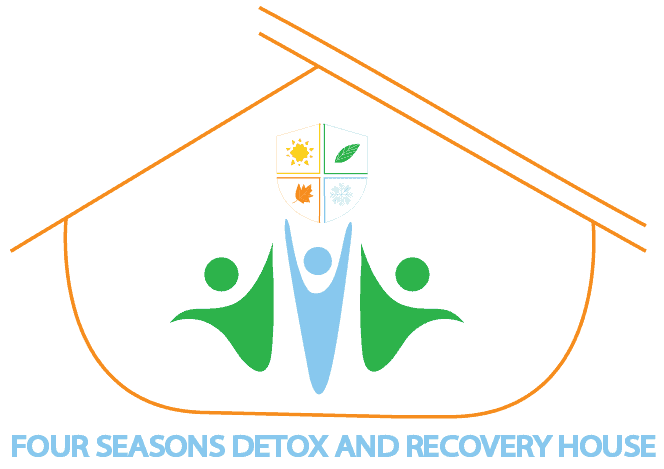Addiction often conjures images of individuals whose lives are visibly falling apart. However, not all addicts fit this stereotype. Some manage to maintain their jobs, relationships, and daily responsibilities despite their substance use. These individuals are known as functioning addicts. Understanding what a functioning addict is and recognizing the signs is crucial for early intervention and effective support.
Understanding Functioning Addiction
A functioning addict, also known as a high-functioning addict, is someone who is addicted to drugs or alcohol but appears to lead a normal life. They might excel at work, maintain healthy relationships, and fulfill their daily responsibilities. This outward appearance of normalcy can make it difficult to recognize the addiction.
Functioning addiction differs from traditional views of addiction, where the individual’s life is visibly and severely affected by substance abuse. According to the National Institute on Drug Abuse, around 20% of alcoholics are high-functioning. This statistic highlights the prevalence and complexity of functioning addiction.
Characteristics of a High-Functioning Addict
High-functioning addicts often exhibit specific traits and behaviors that distinguish them from other addicts. Here are some common characteristics:
- Maintaining Employment: They usually hold down a steady job and may even be high achievers in their careers.
- Social Activity: They maintain a busy social life and can appear charming and sociable.
- Family Life: They often manage to keep family relationships intact, hiding their addiction from loved ones.
- Denial: High-functioning addicts often deny their addiction, convincing themselves and others that they are in control.
- Rationalization: They might justify their substance use by comparing themselves to stereotypical addicts or by emphasizing their achievements.
The primary difference between high-functioning and low-functioning addicts is their ability to mask their addiction. While low-functioning addicts struggle to hide their problems, high-functioning addicts manage to keep their addiction under wraps, making it harder to identify and address.
Signs of a High-Functioning Addict
Identifying a high-functioning addict requires keen observation. Here are some signs to look out for:
Behavioral Signs
- Secrecy: They may go to great lengths to hide their substance use, such as drinking or using drugs alone.
- Excuses: They often have elaborate excuses for their behavior and can be very convincing.
- Routine Changes: Sudden or unexplained changes in their routine, such as missing important events or being late, can be a red flag.
Psychological Signs
- Mood Swings: Frequent mood swings or erratic behavior can indicate underlying substance use.
- Denial: They often refuse to acknowledge their addiction, even when confronted with evidence.
- Rationalization: They justify their substance use with excuses or by comparing themselves to others who are worse off.
Physical Signs
- Health Issues: They might have health problems that seem inconsistent with their overall appearance of normalcy.
- Neglect of Self-Care: Over time, they may start to neglect personal hygiene and grooming.
- Tolerance and Withdrawal: They may require larger amounts of the substance to achieve the same effects and experience withdrawal symptoms when not using.
How to Identify a Functioning Addict
Recognizing a functioning addict can be challenging, especially if they are skilled at hiding their addiction. Here are some tips to help identify a functioning addict:
- Observe Closely: Pay attention to any changes in behavior, routines, or physical appearance.
- Ask Questions: If you suspect someone is a functioning addict, ask direct but non-confrontational questions about their substance use.
- Look for Patterns: Notice if there are consistent patterns of secrecy, excuses, or changes in their behavior that might indicate substance abuse.
If you suspect someone is a functioning addict, it’s important to approach the situation with empathy and support. Encouraging them to seek help can be a crucial first step toward recovery.
Risks and Consequences of Functioning Addiction
Despite their outwardly normal lives, functioning addicts face significant risks and consequences due to their substance abuse. These can include:
Short-Term Risks
- Accidents and Injuries: Substance use can impair judgment and coordination, leading to accidents.
- Health Problems: Even if they seem healthy, functioning addicts may suffer from hidden health issues related to their addiction.
- Legal Issues: They may face legal problems due to behaviors associated with substance use, such as driving under the influence.
Long-Term Consequences
- Chronic Health Issues: Long-term substance abuse can lead to severe health problems, including liver disease, heart issues, and mental health disorders.
- Relationship Strain: Over time, the strain of maintaining their addiction can damage relationships with family and friends.
- Career Impact: Eventually, their performance at work may suffer, potentially leading to job loss and financial instability.
By addressing functioning addiction early, many of these risks and consequences can be mitigated. Understanding the dangers can help in motivating functioning addicts to seek help.
Can You Be a Functioning Addict?
Yes, you can be a functioning addict. The term itself implies that individuals can manage their daily responsibilities while being addicted to substances. However, functioning addiction is still addiction, and it carries significant risks.
Functioning addicts often use their ability to maintain normalcy as a way to deny their problem. They might compare themselves to more stereotypical addicts and convince themselves that they don’t need help. However, this denial can prevent them from recognizing the need for treatment and support.
Factors influencing functioning addiction include personal resilience, social support, and the ability to compartmentalize different aspects of life. But regardless of these factors, the dangers and consequences of addiction remain. It’s important to acknowledge that being a functioning addict is not a sustainable or safe way to live.
Misconceptions and Myths
There are many misconceptions and myths about functioning addicts that can hinder understanding and support. Here are some common ones:
Misconception: Functioning Addicts Don’t Need Help
Reality: All addicts, regardless of their ability to maintain normalcy, need help. Addiction is a chronic disease that requires treatment.
Misconception: They Can Quit Anytime
Reality: Functioning addicts might believe they can stop whenever they want, but addiction is complex and quitting often requires professional help.
Misconception: Only Severe Cases Require Treatment
Reality: Early intervention is crucial. Even if an addict is functioning well now, the situation can deteriorate, leading to severe consequences.
By debunking these myths, we can foster a more supportive environment for functioning addicts to seek the help they need.
Seeking Help: Treatment Options
Recognizing the problem is the first step toward recovery. There are various treatment options available for functioning addicts, including:
Therapy
Individual and group therapy can help addicts understand the root causes of their addiction and develop coping strategies. Cognitive-behavioral therapy (CBT) is particularly effective.
Rehabilitation
Rehabilitation centers offer structured environments where addicts can detox and receive intensive treatment. Options range from standard rehab facilities to luxury detox centers.
Support Groups
Support groups provide a sense of community and shared experience. Groups like Alcoholics Anonymous (AA) or Narcotics Anonymous (NA) offer regular meetings and a supportive network.
Dual Diagnosis Treatment
Many functioning addicts also suffer from mental health disorders. Dual diagnosis treatment addresses both addiction and co-occurring mental health issues.
Encouraging functioning addicts to seek help from these resources can make a significant difference in their recovery journey.
Conclusion
Understanding what a functioning addict is and recognizing the signs are crucial for early intervention. Despite their ability to maintain normalcy, functioning addicts face serious risks and consequences. By debunking myths and encouraging treatment, we can support functioning addicts in seeking the help they need.
If you or someone you know is struggling with addiction, don’t wait to get help. At Four Seasons Detox Drug and Alcohol Rehab Center, we offer comprehensive treatment options tailored to your needs. Whether it’s dual diagnosis treatment, luxury detox, or support through our relapse prevention group activities, we are here to help you every step of the way. Contact us today to start your journey toward recovery.
For more information on how to break free from addiction, check out our resources on How Long Does It Take To Break An Addiction and 6 stages of alcohol recovery. Let us help you achieve a healthier, happier life.






